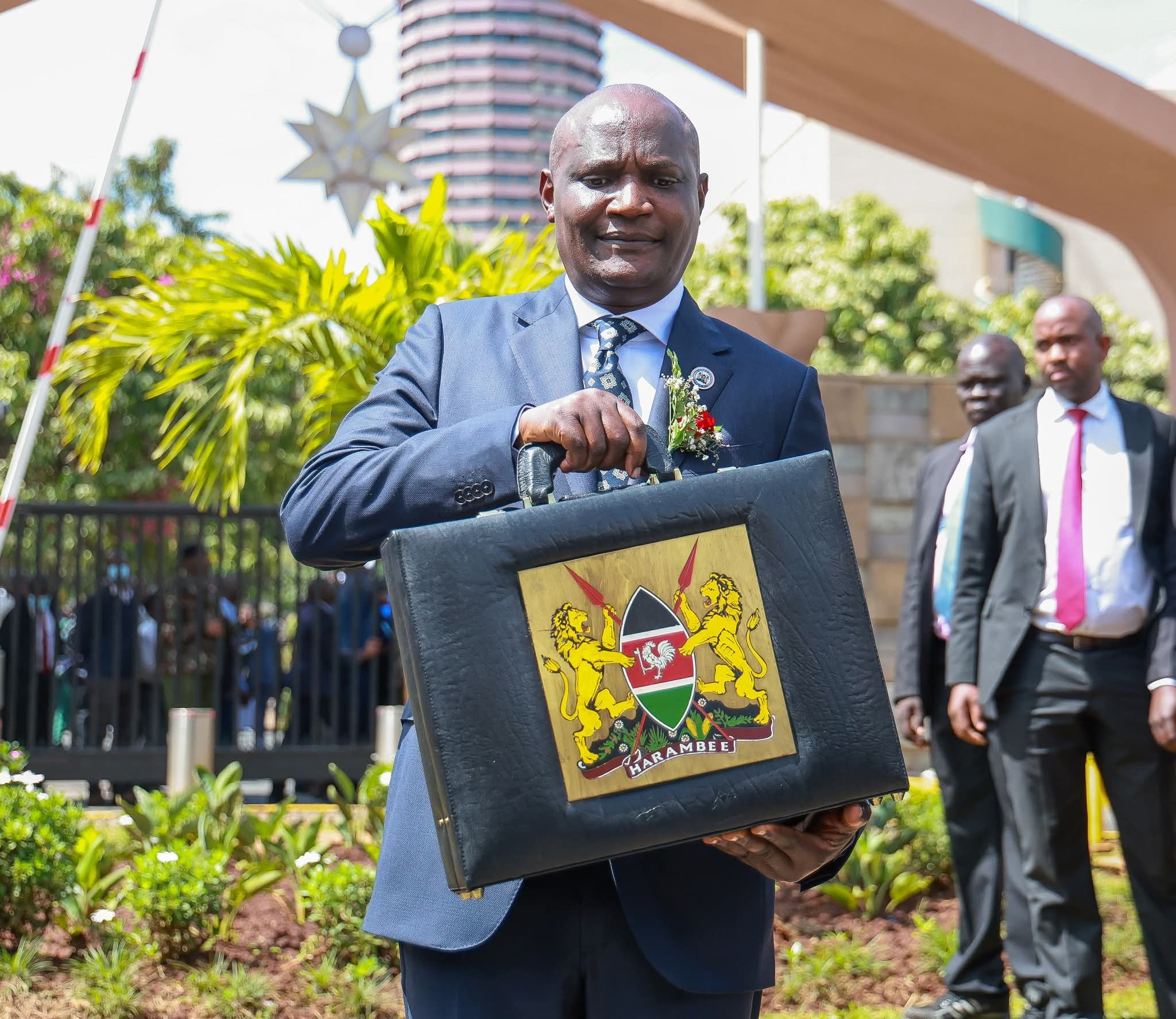 National Treasury Cabinet Secretary John Mbadi on June 12, 2025.PHOTO/HANDOUT.
National Treasury Cabinet Secretary John Mbadi on June 12, 2025.PHOTO/HANDOUT.This amount represents 25.79% of the actual revenues raised nationally in the 2020/21 financial year, based on the most recent audited accounts by the national government.
It marks an increase of Sh17.6 billion from the Sh387.4 billion allocated to counties in the 2024/25 financial year.
In the
budget estimates tabled in Parliament by National Treasury Cabinet Secretary
John Mbadi, an additional Sh9.95 billion was earmarked as conditional
allocations from the National Government's share of revenue. A further Sh56.91
billion has been allocated as conditional grants from development partners.
The National Government's overall allocation stands at Sh2.419 trillion, with the total shareable revenue amounting to Sh2.835 trillion.
Delivering the 2025/26 financial estimates, CS Mbadi acknowledged the expectations of Kenyans and affirmed the government’s commitment to economic recovery.
“I remain mindful of the aspirations and high expectations as I serve in this office. This budget reaffirms the priority policies and strategies aimed at stimulating economic recovery,” Mbadi said, in his first budget statement since his appointment as Treasury CS.
He noted that Kenya’s economy has remained resilient, recording an average growth of 5.2% in the 2023/24 period, surpassing global growth of 3.3% and 3.8% for Sub-Saharan Africa in the same period.
“We have strengthened public participation in all policy formulation, including the budget-making process,” he added.
Under the equitable share allocation, counties will receive the following amounts:
Baringo (Sh7 billion), Bomet (Sh7.3 billion), Bungoma (Sh11.7 billion), Busia (Sh7.9 billion), Elgeyo Marakwet (Sh5 billion), Embu (Sh5.6 billion), Garissa (Sh8.7 billion), Homa Bay (Sh8.5 billion), Isiolo (Sh5.1 billion), Kajiado (Sh8.7 billion), Kakamega (Sh13.6 billion), Kericho (Sh7.1 billion), Kiambu (Sh12.9 billion), Kilifi (Sh12.7 billion), Kirinyaga (Sh5.7 billion), and Kisii (Sh9.7 billion).
Kisumu will receive Sh8.8 billion, Kitui (Sh11.4 billion), Kwale (Sh9 billion), Laikipia (Sh5.6 billion), Lamu (Sh3.4 billion), Machakos (Sh10 billion), Makueni (Sh8.9 billion), Mandera (Sh12.2 billion), Marsabit (Sh7.9 billion), and Meru (Sh10.4 billion).
Migori is allocated Sh8.8 billion, Mombasa (Sh8.2 billion), Murang’a (Sh7.8 billion), Nairobi (Sh21.1 billion), Nakuru (Sh14.3 billion), Nandi (Sh7.7 billion), Narok (Sh9.6 billion), Nyamira (Sh5.6 billion), Nyandarua (Sh6.2 billion), Nyeri (Sh6.8 billion), Samburu (Sh5.9 billion), and Siaya (Sh7.6 billion).
Taita Taveta will receive Sh5.3 billion, Tana River (Sh7.1 billion), Tharaka Nithi (Sh4.6 billion), Trans Nzoia (Sh7.9 billion), Turkana (Sh13.8 billion), Uasin Gishu (Sh8.9 billion), Vihiga (Sh5.5 billion), Wajir (Sh10.3 billion), and West Pokot (Sh6.9 billion).
The government has invested significant resources and implemented radical changes in the education sector, including resolving the uncertainty around CBC.
"We
have strengthened public participation in all policy formulation, including
budget-making process." - John Mbadi, CS National Treasury and Economic
Planning
CS John
Mbadi: There has been public perception and concern in the past that our
budgets tend to be unrealistic. To address these concerns, we adopted the
zero-based budgeting and reduced revenue projection to be in line with trends.















